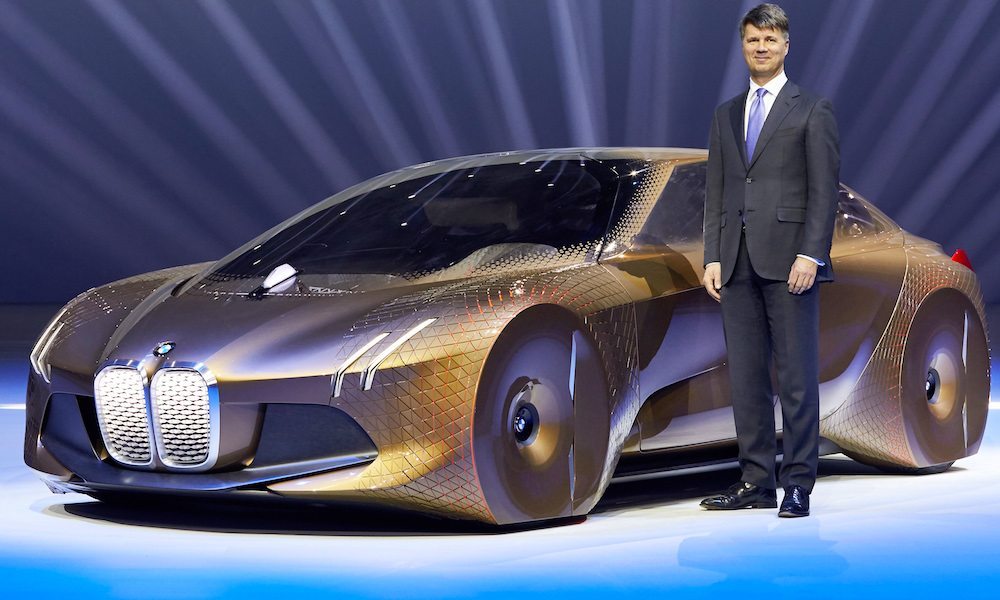BMW, Intel, and Fiat Ditch Apple to Develop Competing Self-Driving Car
 Credit: CleanTechnica
Credit: CleanTechnica
Toggle Dark Mode
During the wayward stages of Apple’s self-driving car endeavor, ‘Project Titan’, the company was rumored to have shifted focus from developing its own automobile, to instead courting several auto-makers in hopes of forging a partnership with at least one. Given the iPhone-maker’s lack of experience manufacturing cars, the company was hoping it would somehow be able to supply autonomous driving software and underlying technologies, which an auto-maker would then be able to install within a jointly-developed automobile.
One of the many auto-makers Apple was hoping to partner with was BMW, who had at one point been in serious talks with Cupertino about moving forward to that affect — that is, until those talks ultimately fell through back in April, 2016, when a slew of unaddressed concerns resulted in BMW and Daimler-Chrysler walking away from the table in dismay.
Now, in perhaps the most ironic turn of events imaginable, it appears that Fiat-Chrysler Automobile group (FCA) has joined forces with BMW and chip-maker, Intel, as part of an all-new endeavor to jointly develop self-driving car technology without Apple in the mix.
The news broke Wednesday morning when FCA published an announcement of the alliance to its website, which interestingly appears to suggest that FCA is relying on partners like BMW and Intel to supply it with the underlying technology required to make its vehicles “more competitive in the coming decade.”
“In order to advance autonomous driving technology, it is vital to form partnerships among automakers, technology providers and suppliers,” Fiat-Chrysler CEO, Sergio Marchionne, wrote in Wednesday’s announcement.
Fiat-Chrysler + BMW/Intel
In its press release, FCA noted that it will essentially be ‘jumping aboard’ the existing alliance between Intel and BMW, which is premised around the chip-maker’s recently acquired self-driving car technology, Mobileye. Interestingly, FCA is already entangled in another partnership with Google’s self-driving car subsidiary, Waymo, under the terms of which it would supply Waymo with “hundreds of minivans” to facilitate the firm’s pilot testing project in Phoenix, Arizona.
Under the terms of this new partnership with BMW and Intel, however, FCA is hedging its bets on developing what it hopes will ultimately become an “industry standard suite of universal self-driving car technologies,” which the companies could potentially even license to other, smaller auto-makers down the road.
Although FCA has been struggling financially in recent years, the company, which currently ranks as Detroit’s third-largest auto-maker, will reportedly contribute a variety of “engineering resources” to help bolster BMW and Intel’s efforts to develop the best self-driving car technology possible.
While Apple has reportedly shifted its focus (again) to develop a self-driving car platform all its own, there’s essentially a race going on right now in the automotive industry, where car-makers and tech-giants are ramping up their efforts to capture the market before it truly starts heating up in the years to come.
Apple was recently granted a permit to begin testing self-driving cars in the state of California, whereas Google’s Waymo, in comparison, has already begun testing its self-driving car tech with humans behind the wheel. Tesla CEO, Elon Musk, meanwhile, has indicated that his company is about two-years away from unveiling a self-driving vehicle. And Ford, Detroit’s second-largest auto-maker, has pledged to release an unconventional new vehicle featuring no steering wheel or pedals by 2021 at the earliest, according to Quartz.






